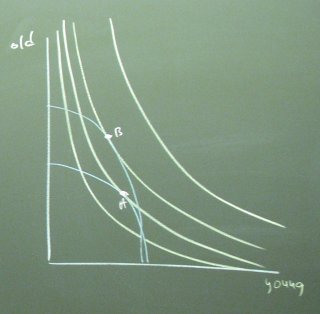February 13, 2003
Should you go to college?
We revisited this issue using a production possibility frontier. This provides a smooth version of our previous discrete choice between college and no college.
Your production possibility frontier reflects the fact that by giving up some production when you are young (staying in school) you are able to increase your production when you are older. This effect is, however, subject to diminishing returns.
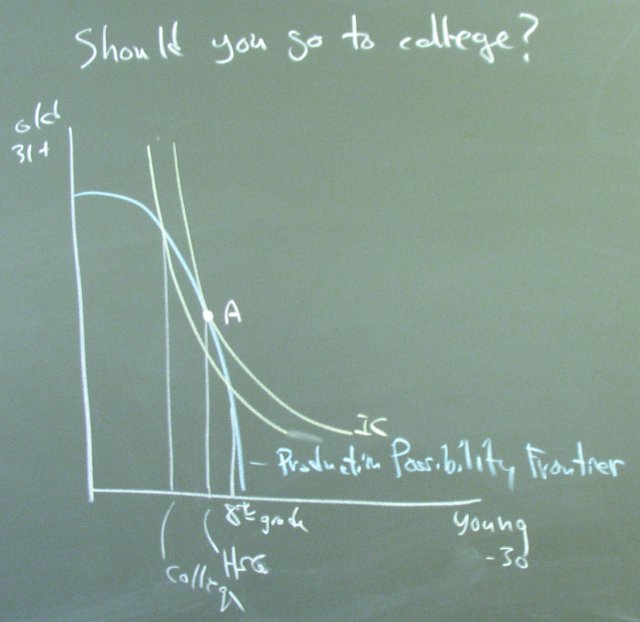
You optimal point A might be a high school education.
Access to financial markets would give you the opportunity to produce at point P and consume at point C. This increases your utility.
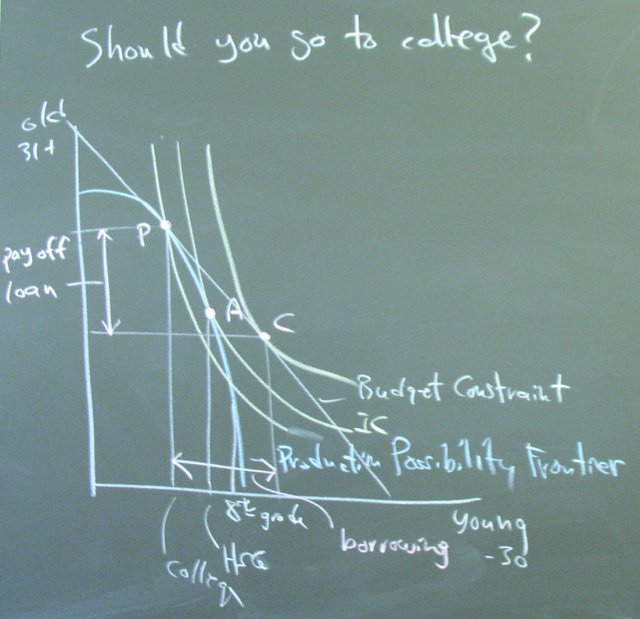
A subsidized student loan rate would make you even happier. You produce at P' and consume at C'.
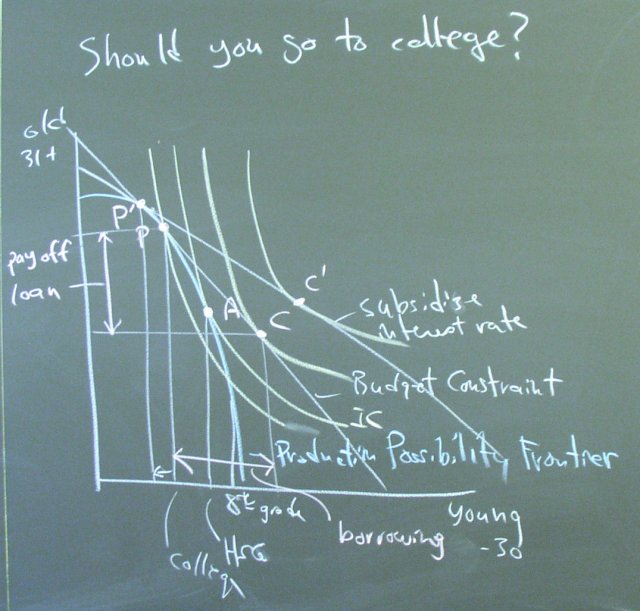
The 12:30 version of that diagram:
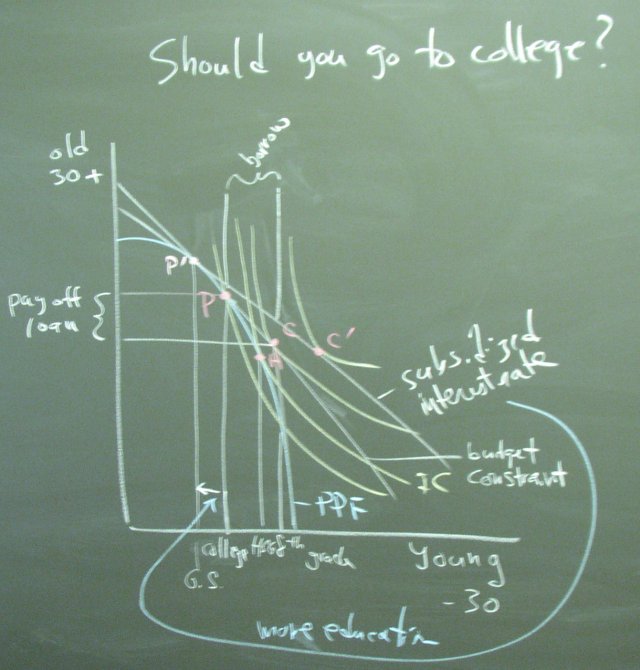
We reviewed an extensive list of reasons why society benefits from subsidized student loans. There is a huge positive externality to education.
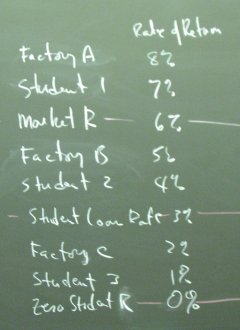
The argument that society should not divert resources from Factory B to keep Student 3 in school might have some merit.
The "diploma effect" might actually cause the PPF to be not so smooth.
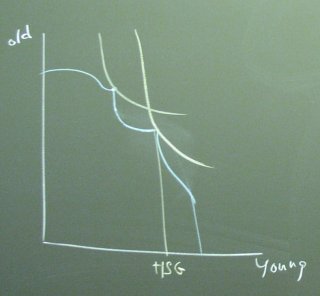
People might have the same indifference curves, but different PPFs. They might make different investment choices.
